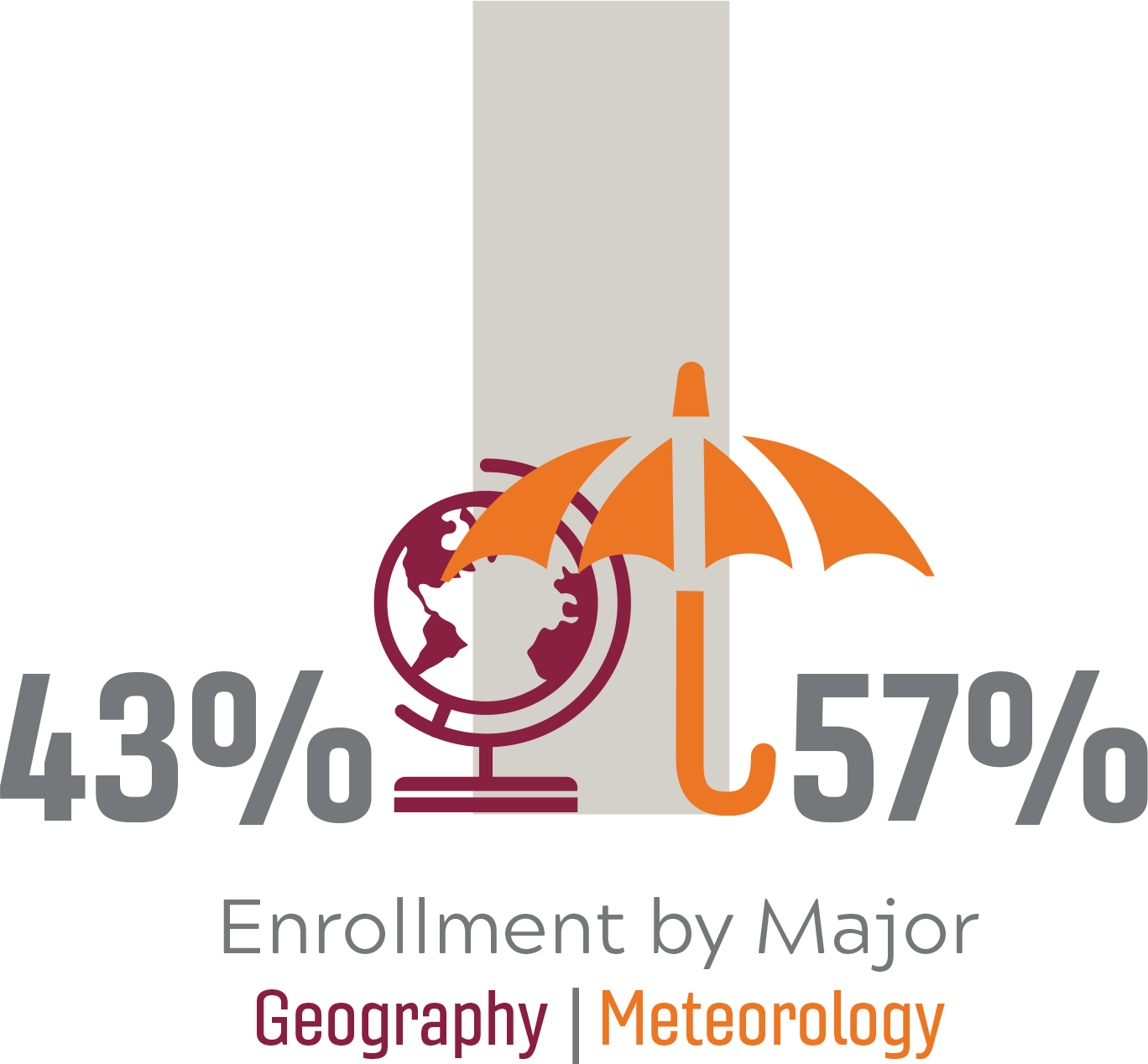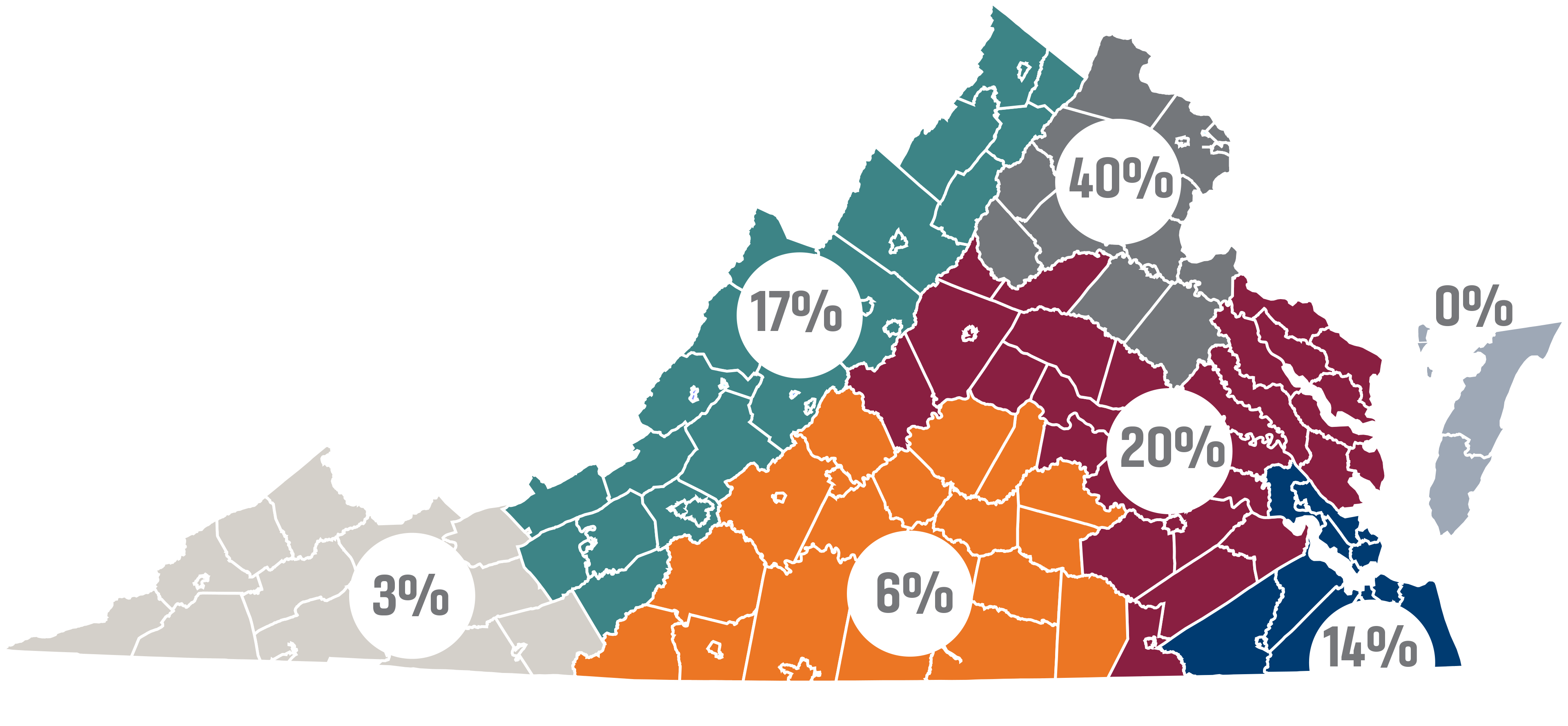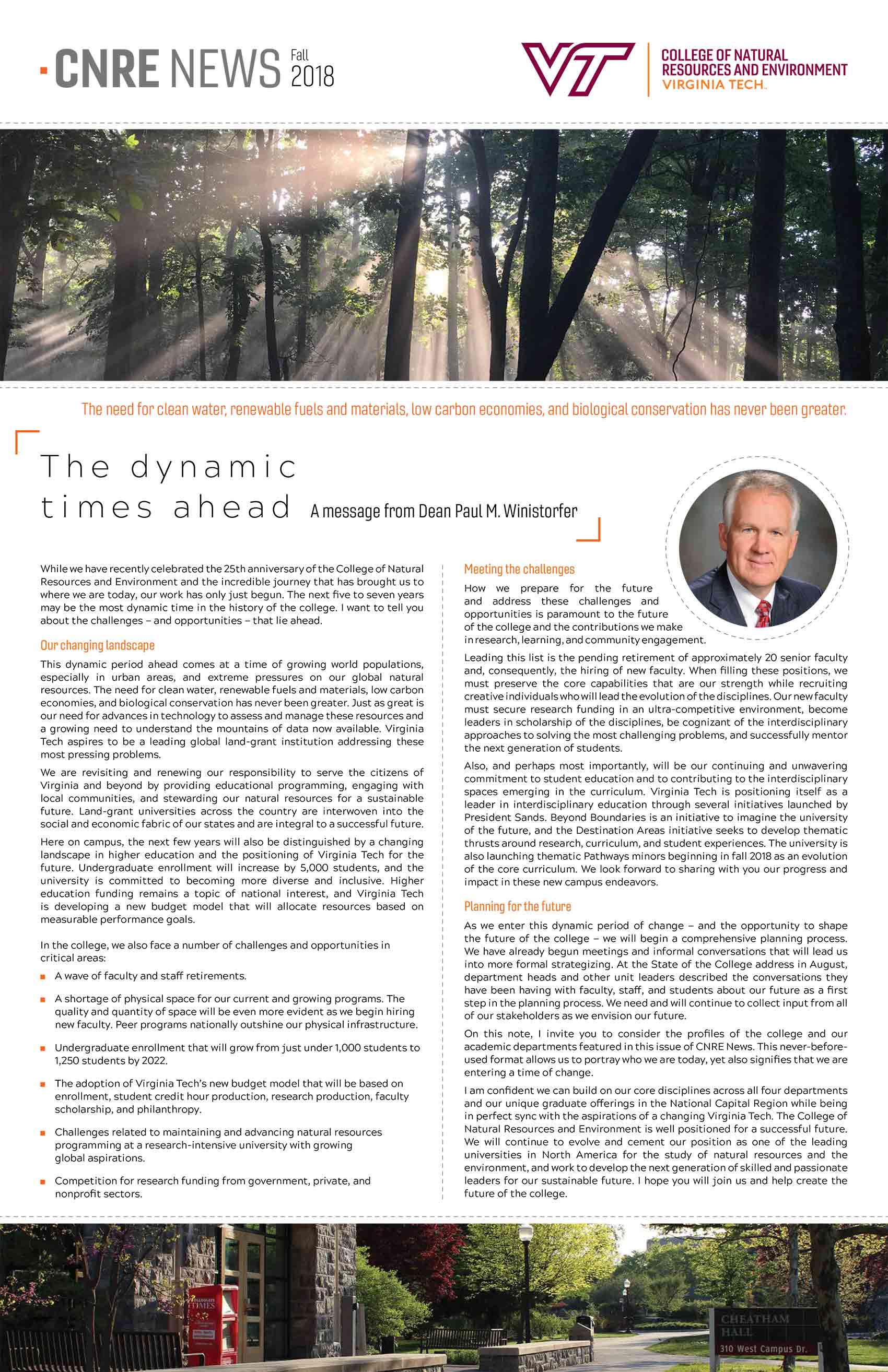A message from the head of the Department of Geography
November 15, 2018
Tom Crawford, Department Chair of Geography

The Department of Geography has experienced a year of significant change and accomplishment. I took the helm of the department in July 2017, and we welcomed two new faculty members. We are known for the high quality and quantity of our instruction and advising. Faculty members Tim Baird, John Boyer (aka the Plaid Avenger), Drew Ellis, Bob Oliver, and Stewart Scales won awards this year recognizing their excellence and innovation in teaching. A sampling of new courses in recent years includes Sustainable Urbanization, Geospatial Land Change Modeling, Climate Change and Society Impacts, Tropical Meteorology, and Africa Together.
The department is well positioned in the new Pathways general education curriculum and leads a new Pathways minor in Sustainability. Faculty members taught international field courses this year that took students to Antarctica (Lynn Resler), Croatia (Anamaria Bukvic), and New Zealand (Lisa Kennedy). Instructor Dave Carroll again led a group of students on his ever-popular Hokie Storm Chase course to the Midwest.
Geography teaches the highest volume of credit hours at Virginia Tech on a per faculty basis. Along with outstanding teaching, the department has been highly productive in our research mission, with many publications in top journals and three currently active National Science Foundation-funded projects investigating topics in Bangladesh, Tanzania, and Tidewater Virginia. Other research themes include human health in Appalachia, alpine biogeographic response to climate change, water resources in South Asia, spatial analysis of tropical cyclones, and urban mega-events (e.g., the Olympics), to name a few. Following the 2017 Charlottesville incident, the department co-hosted a campus event engaging themes of race, space, and place, featuring the president of the American Association of Geographers as the keynote speaker.
As we move into the future, strategic planning will ensure our already healthy status, allow us to grow with the college, and steer us to remain current and nationally relevant within our disciplines.
Did you know?
- The department houses the state’s only bachelor’s degree in meteorology in addition to its bachelor’s and master’s programs in geography, and is a major participant in the interdisciplinary geospatial and environmental analysis doctoral program.
- The geography department is a leader in geospatial technology on campus — 227 students are enrolled in the gateway Principles of Geographic Information Systems course, with 77 percent of them coming from outside the department.
- In 2017, Senior Instructor John Boyer, who teaches the enormously popular World Regions course, taught the most students of any faculty member at Virginia Tech and was named a 2017 Master Educator by Course Hero. Plausible estimates suggest that for recent years, 35-40 percent of Virginia Tech’s graduating seniors have taken at least one of Boyer’s courses.
- Selected faculty research funded by the National Science Foundation: Tim Baird investigates how mobile phones are altering livelihood strategies of the rural Maasai population in Tanzania; Ananmaria Bukvic studies coastal community vulnerabilities to sea-level rise on the U.S. East Coast; Tom Crawford maps rates of shoreline erosion and societal impacts at the mouth of the combined Ganges-Brahmaputra river in Bangladesh.
- Meteorology Instructor Dave Carroll has developed the High Elevation Mountain Mesonet — a constellation of eight remote-access, solar-powered weather stations located in unique sites of the Central/Southern Appalachian region that stream real-time weather data.
- Five undergraduates were inducted into the prestigious Phi Beta Kappa honor society in 2018: Kathryn Dyer, John Herrick, Shawn Rosenthal, Aaron Swiggett, and Madeline Williams.
- Supported by department funds and generous donor gifts each year, multiple students regularly attend national and regional conferences of the American Association of Geographers, American Meteorological Society, and Environmental Systems Research Institute (Esri).
- In 2018, undergraduate students interned at NASA, Smithsonian Institution, Esri, National Park Service, and National Weather Service, among others.
Geography
by the numbers
2018 Fall Enrollment
220 Undergraduates


In-state Student Residency by Region (80% of Total Students)

FreshmAn Admission
Applied
Offered
Enrolled
Offered Rate
Yield
Full-Time Faculty
11 Tenure | Tenure-Track
5 Instructional | Other
2 Scientists | Postdocs
18 TOTAL



